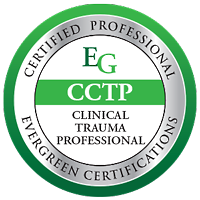Uluru 7-Day Retreat: EMDR Intensive Clinical Training
Description:
OPD Points: 12
- Psychologists
- Psychiatrists
- Counsellors
- Social Workers
- Psychotherapists
- Mental Health Nurses
- Addiction Counsellors
- Marriage & Family Therapists
- Mental Health Professionals
Key Learning Objectives / Outcomes:
- Evaluate the biological nature of trauma, i.e., how trauma is stored in the body and limbic system, creating physical and psychological symptoms to better treat your clients.
- Examine Porges’ Polyvagal Theory as it relates to clinical treatment of traumatized clients.
- Differentiate between sympathetic (activated) freeze response and the parasympathetic (deactivated) dorsal vagal immobilization response in your client’s experiences.
- Demonstrate how tone of voice and proximity communicate safety to your client during therapy sessions.
- Distinguish between the following types of traumatic stress: normal, prolonged, complex and developmental and articulate treatment considerations for each.
- Assess for the clinical implications of traumatic stress symptomology, including hyperarousal, affect dysregulation, dissociation, body memories, and flashbacks.
- Employ three effective somatic techniques to reduce/eliminate client’s body memories, “flashbacks” and dissociation.
- Appraise the landmark study: Adverse Childhood Experiences Study and articulate the ten adverse childhood experiences studied as they related to clinical diagnosis and assessment.
- Determine the relationship between developmental trauma and the inability to regulate both affect and physiological arousal.
- Support the relationship between developmental trauma and “health-risk behaviors” as it relates to clinical treatment.
- Appraise clinical presentation of the following attachment styles: secure vs insecure; insecure; organized vs insecure disorganized.
- Design two clinical interventions based on the clients’ attachment style.
- Diagnose the following disorders based on diagnostic criteria and symptomology: Simple Post-Traumatic Stress Disorder, Developmental Trauma Disorder, Complex Post-Traumatic Stress Disorder, and Borderline Personality Disorder.
- Differentiate between PTSD and CPTSD to improve clinical assessment of your client’s trauma history.
- Evaluate Janet’s tri-phasic model of trauma treatment and its impact of current treatment methodology.
- Appraise and design strategies for the client to acquire the requisite skills for processing trauma via EMDR, including safety within the therapeutic alliance and skills for self-regulation.
- Construct a treatment plan that incorporates various trauma tools, including mindfulness, guided imagery and meridian-based techniques to decrease client’s arousal levels and modulate affect.
- Employ client-driven imagery for safety, nurture, protection and containment. Utilize imagery in both stage one and stage two of treatment.
- Practice (under supervision) the skill for resourcing a client with imaginal resources prior to processing traumatic material.
- Defend Shapiro’s Adaptive Information Processing model as it relates to clinical treatment.
- Demonstrate three techniques of altering bilateral stimulation as a mechanism of action for EMDR.
- Analyze the original eight phases of EMDR’s standard protocol (Shapiro) as it relates to clinical treatment.
- Evaluate Parnell’s four essential elements of utilizing EMDR in session.
- Justify the clinical applications of Parnell’s modified EMDR protocol for working with complex and developmental trauma.
- Demonstrate the specific EMDR skills utilized in a clinical setting for processing traumatic memories.
- Investigate two contraindications for utilizing EMDR interventions for trauma treatment.
- Formulate two EMDR protocols for working with Addiction.
- Support Millers’ Feeling-State Therapy Addiction Protocol
- Appraise Popky’s urge reduction protocol, Desensitization of Triggers and Urge Reprocessing (DeTUR)
- Practice (under supervision) a modified EMDR protocol to prepare for work with your clients in-session.
Assessment:
Presenter / Provider:
Gerard Ilaria
Presenter Qualifications:
LCSW-R, EMDR-C
Gerard Ilaria, LCSW-R, EMDR-C, has been a trauma therapist for over 35 years and has supervised hundreds of EMDR therapists across the United States of America. He is the president of Bilateral Health, LLC in New York City, and the inventor of BLS Remote, a telehealth device that enables remote EMDR therapy using alternating bi-lateral stimulation. Gerard is a licensed clinical social worker holding a Bachelor of Arts in Psychology and a Master of Social Work from Columbia University. He is the Clinical Director of Center for Trauma and Addiction in the Division of Public Health Programs, Department of Medicine, The Joan and Sanford I. Weill Medical College of Cornell University. An international speaker, Gerard has presented at EMDR and trauma conferences on the use of EMDR to treat trauma in veterans with combat PTSD, people struggling with addictions and compulsions and with traumatized members of the LGBTQIA+ community. He has established and run programs for people living with HIV and AIDS, as well as a national program with 250 EMDR therapists serving over 2,000 veterans. Gerard has dedicated his career to the provision of mental health and health care to stigmatized and underserved populations.
Start / End Date
Times:
Start:
End:
Course Duration:
Course Hours:
Registration Instructions:
Save $200 with early registration!
Early registration closes 10th February — Just $4,999.95 Today
Click here for Payment Plan Information Claim your spot for just $1000 down today – our flexible payment plan makes this practice-changing experience accessible and affordable.

- PESI AU will cover the cost of your CCTP certification application (a $99.95 USD value).
- Access to the eBook Trauma and Attachment: Over 150 Attachment-based Interventions to Heal Trauma by Christina Reece, PhD, LCPC. Packed with worksheets, exercises, and activities, this book provides clients with the tools they need to develop a foundation for healing so they can find feelings of safety and security within relationships again.
- An additional 19.25 CPD Hours – included in this self-paced course.
Cost:
$5,199
Address:
Sorry, no records were found. Please adjust your search criteria and try again.
Sorry, unable to load the Maps API.

